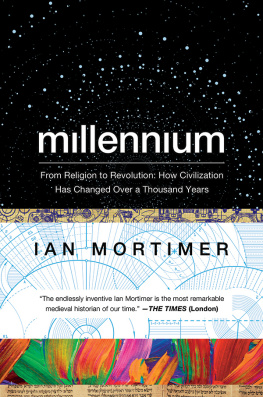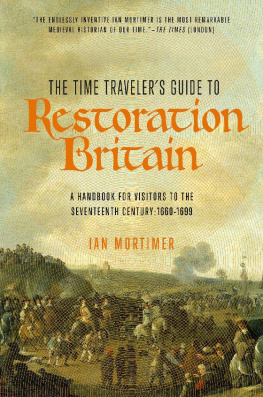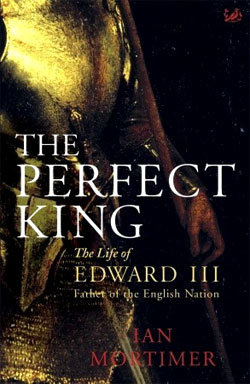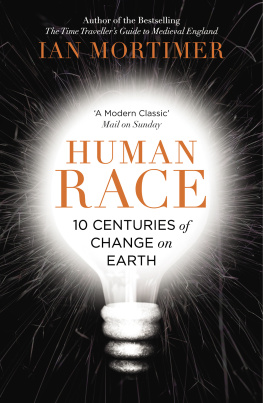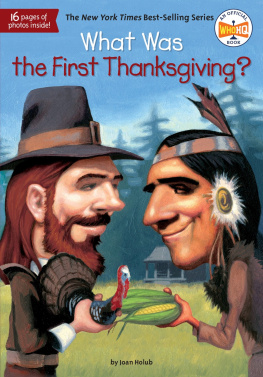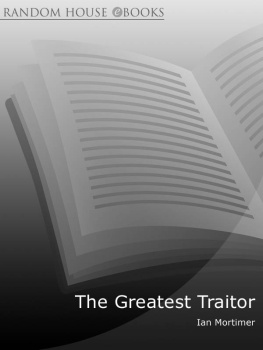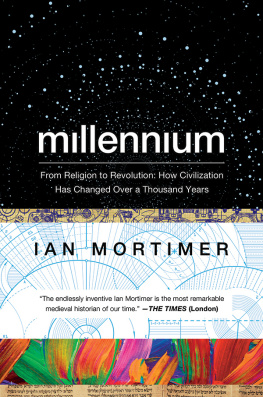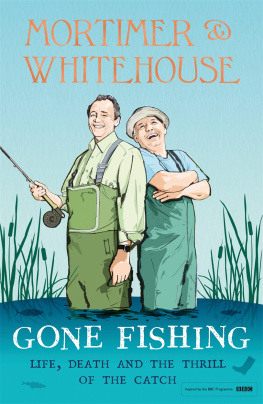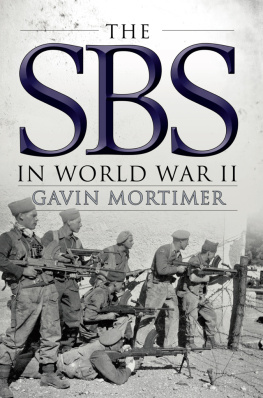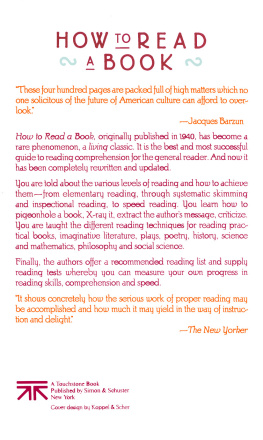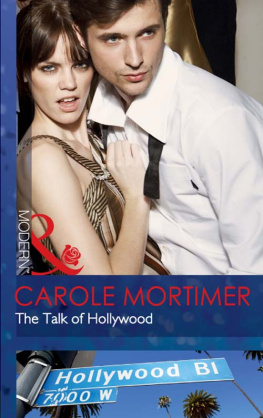What Isnt History?
Selected articles and speeches on writing history and historical fiction
Copyright 2017 by Ian Mortimer
All rights reserved. No part of this book may be used or reproduced in any form or by any electronic or mechanical means, including information storage and retrieval systems, without permission in writing from the publisher, except by a reviewer who may quote brief passages in a review.
Electronic edition published 2017 by RosettaBooks
Cover design by Christian Fuenfhausen
ISBN (EPUB): 9780795350535
ISBN (Kindle): 9780795350542
www.RosettaBooks.com
Introduction
Should historians and historical novelists reflect publicly on what they do? On the one hand, the answer has to be undoubtedly yes: many professions are greatly enhanced by their practitioners examining their roles, even when they are critical about those experiences (or, perhaps, especially when they are critical about them). History is such a nebulous discipline that it stands to benefit greatly from historians reflecting in some depth on what history is and why people (not just historians) understand the past in the ways they do. Yet there are those who will take the opposite point of view. Some people do not believe that history is a nebulous discipline at all but that the past is a succession of facts that can be broken down and described accurately in the same way that one breaks down the arc of a curve using calculus. In my experience, nationalism in many countries and cultures leads many people to look at their national histories as unquestionable matters of fact; historians are not at liberty to deviate from the hymn sheet or seriously to question it. For them history is a matter of certainties, not readings or questions, and therefore any reflection on the process of writing history that might cast doubt on these certainties is subversive. Others reject the idea that a historian or historical novelist should reflect on what he or she does for different reasons. Some think that only specialists are in a position to reflect on what historians do because the philosophy of history is a discipline in its own right, with its own highly refined set of values and tools. God forbid that ordinary writers of history should blunder like amateurs across their territory! In their eyes, it does not matter whether historians writing for the public purvey truths, facts, readings, narratives, impressions or fictions; their reflections on their craft are as meaningless as birds opinions of ornithologists.
It will come as no surprise that my opinion is that all serious writers about the pastand I include nationalist historians in this, as well as serious novelistsshould at some point in their career reflect deeply on what it is they do. This is because, frankly, the writing of history is a very strange thing. We try to explain things that happened long ago, which involve people whom we never knew personally, whose life stories are largely unconnected with our own and no more substantial today than smoke rings blown from a Victorian pipe. Why would anyone want to listen to a stranger tell us about people he could not possibly have known? Actually, leave the stranger bit outjust writing about the distant past is extraordinary enough. No other animals dwell on the distant past and human beings have only done so for what amounts to a very short period of our existence. It is therefore incumbent upon historians to explain themselves for the same reason it is incumbent upon anyone in a non-functionary role to explain why they do what they do, and what it is exactly they do when they are doing it: I might mention among them explorers, racing-car drivers, artists, mountaineers, daredevils, poets, politicians and other metaphorical human cannonballs.
Attempting to describe the past is arguably even stranger (and the need to explain it commensurately greater) when a writer attempts to write for multiple audiences, and to write fiction as well as non-fiction, and biography as well as macro-history. In my own case I have written analyses of information that argue for the certainty of a particular event while arguing in other contexts that many different readings of an occurrence are all equally valid. History, I repeat, is a nebulous discipline, but sometimes within the nebula of past events a startling light catches your eye, and draws your attention, and, although the mass remains nebulous, you see that light clearly amidst the vast haze. Discipline is essential to preserve that clarity but discipline is not everything; a truly scientific writer of history will never reveal anything other than a succession of facts to his readers; he will never inspire them with his unblemished, accurate list. But nor will the historian who lacks discipline have a lasting influence: it does not take long for the presumptions and inaccurate assumptions of a hectic mindor a hasty, superficial or untutored oneto be laid bare. The purpose of history is not simply to say what happened in the past but to convey its meaning to the living and future generations: to draw the light out of the nebula and reveal it to others. This is why the philosopher of history who never writes history himself is in a poor position to reflect on the process. He can only judge the discipline and its nebulousness; he is in no position to comment on the art of drawing enlightenment out of the past, which makes the whole process meaningful.
In this book, I have brought together a few insights that I hope will interest fellow historians, students, novelists and those members of the public who take a serious interest in the nature of history and historical fiction, and their respective positions in our culture. These, I hope, will be read in conjunction with Objectivity and information the methodological introduction to my book, Medieval Intrigue, and The Shakespeare Authorship Debate and Historical Responsibility, both of which go a step further than the essays here and argue how aspects of the past can be proved and how, when such things can be shown to be beyond doubt, it is irresponsible to maintain contrary arguments. One of the things that I hope this book conveys is that it is not just what we say about the past that matters, the way we say it is also importantsomething rarely dealt with in our university departments. Whether we are writing fiction or non-fiction, there are very few hard-and-fast rules (contrary to what many people say) but there are millions of expectations that, if we disregard them, will undermine our work. Ultimately this is why writing history is so difficult and so compelling: it is hard enough to describe all of humanity and all we do in the present moment, let alone over the course of hundreds of yearsand harder still to explain why things altered in the ways they did.
The articles and lectures in this book were not originally written with the plan of collating them in one volume. They were written for a wide variety of audiences at different times and for very different reasons. This is perhaps best shown by the wide range of outlets in which they first appeared (for which, see the at the end of the book). Obviously the title piece was aimed at an audience of professional historiansteachers, postgraduate students and academicsbut the remainder were aimed at interested history readers, historical novelists and members of the public. The philosophical purist will see this as a weakness, for the collection as a whole does not display a unity; but you can say much the same thing about history itself. After some reflection, I realised that this is how it has to be. A book on the writing of history, written as a single sustained piece with a single set of objectives in mind, would not represent the multiple challenges that a writer faces in speaking to a wide variety of readers and listeners in different genres. And between mass market historical fiction and the sharp end of peer-refereed scholarly research, we are talking about a



